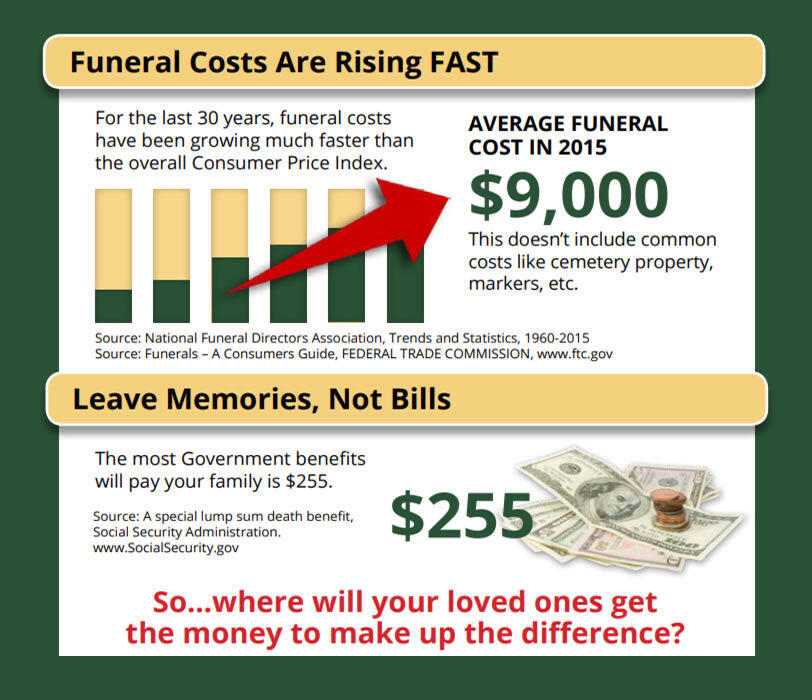Table of Content
Moreover, you will have the guarantee that you will be taken care of as you deserve, without spending all of your savings or becoming a money problem for your children. If you take a policy with a shorter elimination period, or none, then it will cost more. If you decide to take a longer elimination period, you are essentially agreeing to cover the costs yourself for a longer period before your policy starts to pay.
Ask for the specific details of the policy, and if it does include nursing home care, find out exactly what it covers. Furthermore, make sure you find out if there are specific nursing homes that you will have to work with in order for an insurance plan to be effective. Request to receive the details of the policy in writing so that you have a hard copy to refer to.
Tricare For Life: Coverage Basics Enrollment & Costs
A higher deductible, lower reimbursement rate, and fixed annual limit result in lower premiums. But these flexible options require a bit of forethought and budgeting, and you’ll need enough cash to cover the deductible. Unfortunately, Petco does not offer a preventive care package with its insurance policy, so it does not cover vaccinations. If you desire coverage for routine care, including vaccinations, look into Petco’s Vital Care wellness program, which covers all routine vet visits. Separate from its pet insurance policies, Petco offers a wellness plan through its Vital Care program. Vital Care is not considered insurance; you must purchase it separately from pet insurance.
Medicare offers pretty limited coverage for nursing home care, but it can help offset the costs of a short-term stay or related medical services. If what Medicare offers isn’t enough, you have other options, though. Read on to see what Medicare can do for you and what your alternatives are if you need more help. Carefully review the coverage options, benefit period, maximum limits payable, and types of coverage offered.
Does Medicare pay for nursing homes?
Part B of Medicare will also cover durable medical equipment and medical supplies if they are medically necessary. But Medicare Part B does not cover any purely custodial services. Unlike nursing homes, assisted living facilities typically are not all-inclusive and instead have additional costs depending on services. Travis Price, a Medicare and final expense insurance agent, advises that before researching your policy further as far as assisted living or nursing home benefits, it’s important to understand two types of care. Medicaid, the insurance program that helps cover costs for those in low-income households, has state and national programs that help pay for nursing home care. Exceptions may include if you purchase a Medicare Advantage plan with a specific agreement with a nursing home.
In some cases, the VA will help pay for a veteran’s care at a State Veterans Home. A home must meet the VA standards for nursing home care to receive per diem aid. In addition, the VA will not pay more than half the cost of the veteran’s care. Assisted living facilities primarily help residents with non-medical needs. Although minor and infrequent medical services, such as first-aid for a wound, can sometimes be met on-site by nurses.
Nursing home expenses a policy will — and will not — pay for
In this type of case, a health insurance company or Medicare will cover a specific number of days; however, usually there are stipulations involved. For example, if your loved one does not attend a nursing home immediately following hospital discharge, medical insurance or Medicare may not pick up the bill. Certain Medigap plans may offer additional coverage for skilled nursing facility coinsurance in exchange for an extra monthly premium.

Nursing home care often allows a person to live independently without having to engage in home maintenance activities, like mowing the lawn or upkeep on a home. States usually have their own eligibility requirements, in addition to the VA’s requirements, such as residency requirements. The veterans home will apply for VA aid for a veteran’s care by submitting VA Form 10-10EZ, Application for Medical Benefits. Whether the CLC can competently provide the type of care the veteran needs. If the service you need isn’t covered, the VA will help you to sign up for other helpful services, such as Medicaid.
Additionally, it will guarantee you will have the care you deserve without wiping out your own savings and becoming a financial burden on your family. Medicare covers a stay in a skilled nursing facility for up to 100 days. Medicare only ever covers the first 100 days in a nursing home, so nursing home coverage is not significantly different for people with dementia. Medicaid can help cover memory care units and nursing home stays beyond 100 days, though. No, older adults should not rely on Medicare to cover nursing home costs. While Medicare can help offset some costs, such as doctor visits or medication, it will not cover long-term stays at a nursing home.

Nursing home insurance is a type of supplemental health care insurance or long-term care insurance. Instead of focusing only on assisted living costs, discuss the options with an insurance professional. They can make recommendations on policies tailored to your needs, helping you get the maximum benefits in covering the cost of living in a private nursing home.
All Americans who are 65 years old are eligible for Medicare, a national, government-funded health insurance program. In some cases, people who have a disability may be able to enroll in Medicare even if theyre under 65. You can find the best nursing home insurance provider if you choose to work with an independent agent. It may be complicated to understand and choose nursing home insurance, but can be very beneficial to get coverage from a provider which is specialized in the industry. The expenses with this can be extremely high, and you may end up needing this care and services for many years, if not for a decade or even more. You will end up saving hundreds of thousands of dollars when you are old if you start paying for this coverage when you are younger.

Again, these are often the exception, not the rule, and available options vary geographically. Some Medigap plans may help to pay for skilled nursing facility co-insurance. Plan K pays for about 50 percent of the coinsurance and Plan L pays for 75 percent of coinsurance.
Note that Petco will cover a preexisting condition if it is curable. If your pet has gone 180 days without symptoms or treatment, Petco will treat the condition as new if it recurs. In short, if the care received does not require a medical degree of some form to provide, Medicare is not responsible for covering the service.
However, some Medicare Advantage plans have Special Needs Plans that may help you if you live in a nursing home or have certain conditions, such as congestive heart failure. Medicare considers home health care to be skilled, in-home nursing care or outpatient therapy services to treat an illness or injury. Nursing home care services are somewhat similar, but delivered in a skilled nursing facility . Whether Medicare covers these services will depend on the type of nursing care you need and how long you need it.
While long-term care insurance does not usually offer comprehensive payment coverage for assisted living, the limited support that most policies include can reduce the expense of nonmedical long-term care. Together with other options, such as Medicaid waivers and reduced fees for residents with limited income, long-term care insurance can help many seniors manage the cost of the care they need. Most residents entering a skilled nursing facility pay for their care using their own funds at least initially. This might mean dipping into your loved ones personal savings, stocks or other assets.

The average national cost for assisted living is $4,300 a month, according to Genworth’s Cost of Care Survey. This cost varies by location and by the amenities each community offers. In most facilities, the monthly cost pays for a room, meal service, caregiver assistance and some extras, such as basic cable and access to gym or other routine health services. Laundry, housekeeping and transportation costs may be included, or they may cost more, depending on the facility. At the other end of the nursing home spectrum is high-level inpatient medical care, referred to as skilled nursing or rehabilitation care.

No comments:
Post a Comment